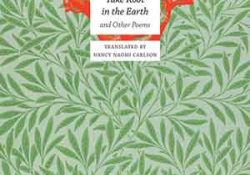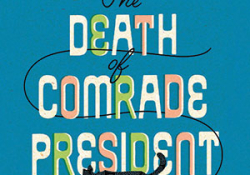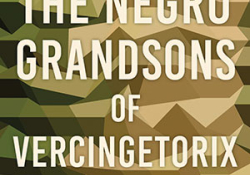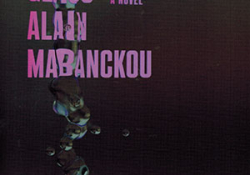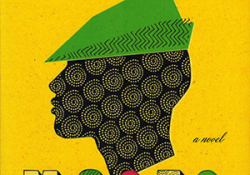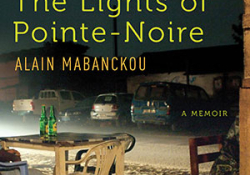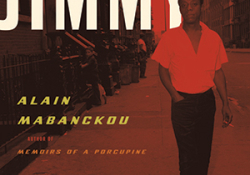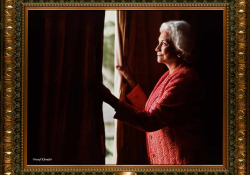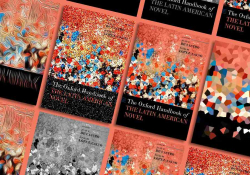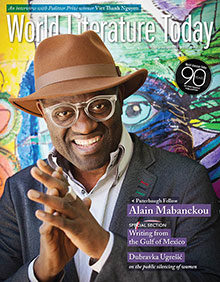“The Song of a Migrating Bird”: For a World Literature in French
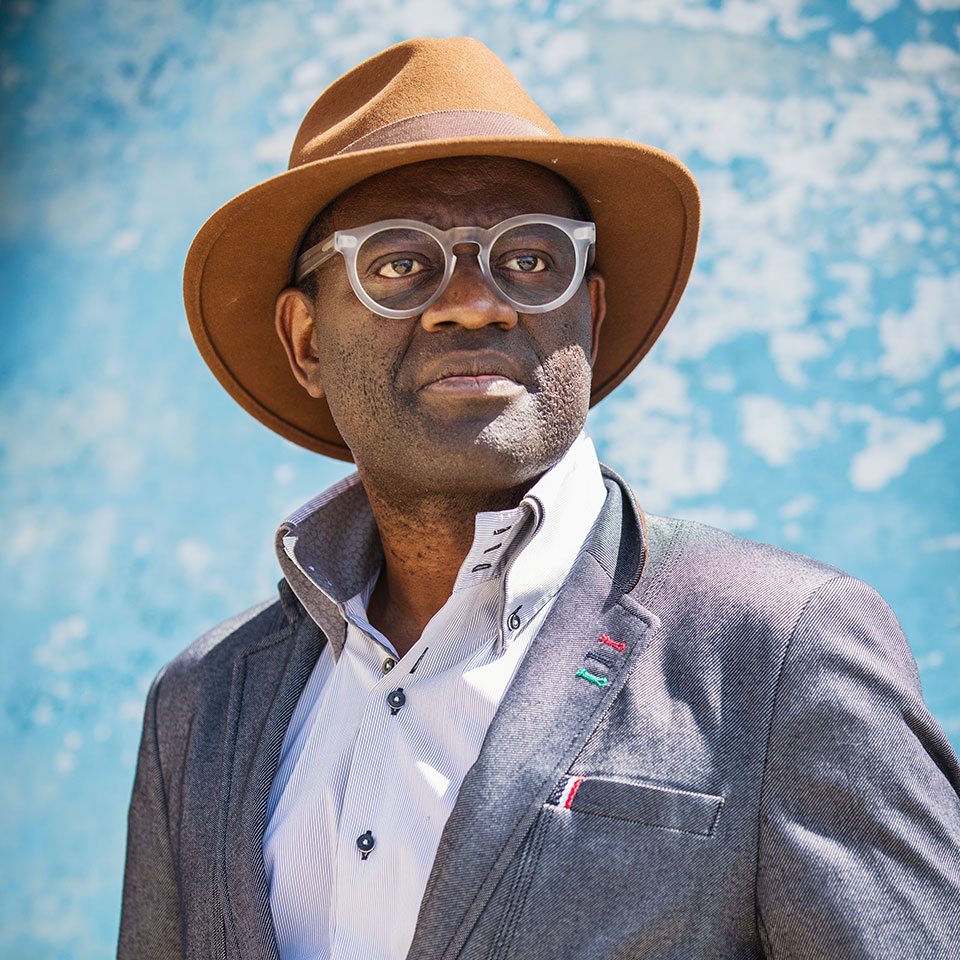
On March 19, 2006, the French daily newspaper Le Monde published an article I wrote entitled “La francophonie, oui; le ghetto, non.”1 My intention was to question the place of francophone literature in the broader corpus of works of French expression but also to propose—and this I did not realize until much later—a tentative definition for what is now being called a World Literature in French. In the meantime, the notion of francophonie itself has triggered ambiguous reactions and has been contested by those who have emphasized its political overtones and therefore denounced it as an extension of France’s foreign policy in its former colonies! Literary creation takes place outside of these considerations, and that was the spirit in which I then proposed a definition of what should be understood by the label “francophone writer,” a definition that also included, without hesitation, French writers—and it would be enough to substitute this definition, mutatis mutandis, in the context and spirit of this particular discussion, for us to begin to see in the background the profile of the French-language writer confronting the world:
To be a francophone writer is to be a repository of cultures, a whirlwind of universes. To be a francophone writer is to benefit from the heritage of French literature in general, but it is above all to bring a personal touch to a harmonious whole, one that dissolves borders, erases race, reduces the distance between continents in order to achieve a fraternity in both language and the universe. The francophone family is on its way. We will no longer come from such and such a country, from such and such a continent, but rather from a language. And the proximity we share as creators will simply come from a common universe.
One should not forget that in order to reach such a conclusion, I started out from the awareness that hitherto we had been presented with an exclusive understanding of literary creation in French. This widely accepted—and therefore untouchable—model of French literature, bolstered by and proud of its long tradition in letters, its different movements, the literary prizes offered each year during the autumn months, its long list of illustrious authors, and prestigious Parisian publishing houses. “Peripheral” literatures of French expression were compelled to gravitate around this center. In these circumstances, Paris nevertheless remained the unchallenged center, the standard through which everything was compared and measured, even as a number of francophone spaces in Quebec or Brussels revealed unquestionable signs of literary dynamism, with their own important publishing houses, generous publishing subsidies, and significant review outlets in the press.
The preeminence of the City of Lights is not of course new. It has a long history within France itself. French “provincial” writers are no better off than their “francophone” counterparts, and for the Parisian establishment that considers them “local,” “pastoral” authors, they are a source of derision. There are in fact literary associations for these authors, even regional markets at which books can be found on display alongside stalls selling local produce such as foie gras, tapenade, or jars of homemade jam. Parisian authors can occasionally be spotted at these gatherings, enjoying a day excursion out of the city, just long enough for their colleagues from the provinces to notice they have succeeded in making a name for themselves in Paris. Was this what had fueled, once upon a time, the despair and suffering of Lucien Chardon (alias Lucien de Rubempré) in Balzac’s novel Lost Illusions? We do know that the character went to Paris with the aspiration of achieving literary glory only to be confronted with the harsh realities of a closed milieu before having to return to his native Angoulême contemplating suicide. But after all, we are not characters in some kind of “human comedy” but rather the children of a World Literature in French!
The journey will have been long and arduous. Yet when the phenomenon of Parisian hegemony is scrutinized, particularly as far as it concerns authors from the francophone world, one realizes that the hierarchies that exist are not exclusively attributable to France or even to the vanity or disdain expressed by French authors or editors with regard to these writers from elsewhere. The latter share in the responsibility, since they display an almost natural inferiority complex to the point that any form of recognition conferred upon them by their own people remains for them a kind of epiphenomenon, a local consecration, a form of distinction they consider without comparison to that conferred by the French establishment. For them, literary success can only be mediated through acceptance into Parisian literary circles: the francophone author does not come into being until the Parisian establishment issues its stamp of approval.
The francophone author does not come into being until the Parisian establishment issues its stamp of approval.
The consequence has been that France’s view of these writings has been for the most part condescending. Changes to this relationship and the coming together of our universes would also take place in France. Book fairs began to turn their attention toward “the French-speaking world,” and the Étonnants Voyageurs festival was among the precursors. In this way, a number of francophone authors whose paths had not crossed in their home countries started to meet up in places like Saint-Malo or Bamako and to sense that something was beginning to take shape, or rather to be confirmed—in fact, we were not so much witnessing a birth but rather becoming conscious of something we had henceforth not really paid any attention to. Little by little another image would emerge, but also new forms of prejudice. Both French and francophone authors have contributed to this construct and thereby reinforced this division. Few are those who at some point or other have not come across such “compliments” as: “one of the most important francophone authors,” “one of the most important authors from the African continent who handles our language so skillfully,” “one of the major voices of francophone literature,” or even “a first-rate Québécois author,” “the African Voltaire,” “the tropical Céline.” A self-satisfied and cheerful critic may even argue that these authors “who have an accent” enrich, save “our” French language, and therefore contribute to its global influence at a time in history when English is supposedly annihilating everything in its path. Must one then assume that “Franco-French” authors are not contributing to the radiance of “their” language in the world and that in the face of “unfair competition” of the kind Brassens sang about, “Tomorrow may be too late”?2
In the end, saying that a francophone author enriches or saves a language is far from being a compliment. Such remarks set up a relationship of subordination in which francophone literature ends up being considered purely for its social function, for what it brings to the French language. This has the effect of denying these writers any kind of creative agency, the very potential of elaborating an aesthetic project outside of the cumbersome struggle associated with caring for a wounded language stuck in its blind pursuit against a carefully marked enemy, namely the English language. These arguments no longer carry any weight; in fact, they are becoming obsolete. The decline of the French language is an “idea for a yogi or a monk,” to use Sartre’s way of describing purity in his play Dirty Hands.3 Why does the French language require surveillance, night watchmen? And why should this subsidiary role fall on the shoulders of authors who have come from elsewhere? There lies the undoubted truth: no literature can be content with playing the role of an orderly. One does not write to save a language, but rather to create one.
One does not write to save a language, but rather to create one.
Critics have a tendency to consolidate schisms. In spite of themselves, at no time does it enter their minds that “these voices from elsewhere,” these voices that come to us without the “impediment” of translation, are in fact components of a much greater space—in which one may also find French writers—spaces in which the French language itself would be the common denominator, and in which the respective universes serve merely to shape our temperaments and underscore our experiences as individuals.
The divide triggered by the reception of the francophone text creates havoc in the process of circulating the book itself: for many, francophone literature is a foreign literature, and that is in fact how my work has often been qualified. In “literary geography” and on the shelves of bookstores, I often share space with “foreigners” such as Luis Sepúlveda, Mario Vargas Llosa, Orhan Pamuk, or Arturo Pérez-Reverte. Naturally, I have nothing against keeping such fine company! The thing is, though, these authors of “foreign literature” do not share the French language with me. What I admire in their work is their particular universe, imaginary, imagination, creative genius—and when I find myself jubilant before the beauty and power of language in a book by Gabriel García Márquez, it is, “unfortunately,” as a result of reading a French translation.
People will never fully grasp the ambiguity I feel concerning my relationship with other African writers. For example, between the Nigerian Wole Soyinka and the Frenchman Louis-Ferdinand Céline, one of the two is a “foreigner” to me. And it is certainly not Céline whom I read in the original French, but rather Soyinka whom I discovered through the convoluted path of translation. We could argue over the fact that Soyinka and I “possess” Africa or that we are “possessed” by Africa, our continent, our native land. But that would be a different debate, and such a “continental” understanding of literature for a long time hindered the intelligibility and independence of art. Africa is such a vast continent, made up of so many entangled cultures, and exhibits such a tremendous complexity that one would have no trouble digging up two writers from the same country who would be “strangers” to each other! Strangers in the way they see the world, hear a bird’s song, or envision art. This is precisely the point at which world literature intervenes, establishing complicities beyond continents, nationalities, catechisms, and genealogy in order to register the discreet way in which two seemingly disparate artists suddenly acknowledge one another.
So, what are we to make of all this?
Well, one should be reminded that the world is in constant flux, that cultures intersect, and that the time has come to take stock of our cumulative knowledge. Ultimately, though, we need to answer the unavoidable question that won’t stop haunting us, gnawing at us as long as we have not made our position clear: What do we or what should we, we writers who share the French language, contribute to the world? The answer to this question will reveal our future position. Responding to this challenge is to accept the building of a fortress. Running away from it will only result in having to listen to yet more chronicles anticipating our defeat before the rumblings of the world.
The literary family increasingly feeds on disparity. Liaisons—I was going to say complicities—are striking: for example, a Congolese writer may well feel closer to an author from Mauritius, Djibouti, Colombia, or Italy than to an author from his own country. This same Congolese writer will have taken the “voyage in literature”; wings widely stretched out, he will have flown over territories and listened to a myriad of voices. This mobility will naturally change his perspective on creation: “One writes out of one thing only—one’s experience. Everything depends on how relentlessly one forces from this experience the last drop, sweet or bitter, it can possibly give. This is the only real concern of the artist, to recreate out of the disorder of life that order which is art.”4
For an African writer such as myself, the challenge comes from having to rethink one’s position, since we have always been told that literature could only serve for rebellion and had to draw its inspiration from the community, a burden of responsibility that has often been harmful to our development as writers. With those kinds of expectations, African writers could at best serve as recorders of the “past,” and rare are those who would dare to write about the present or invent the future. Lamentations are not far behind and, along with them, this anemia qualified by some as “Afropessimism.” This type of literature is circumscribed by its official position, surely what Derek Walcott had in mind when he denounced it in the following terms: “Their poems were confined to lamentation, their novels to propaganda, as if a general pardon in the name of the past could replace the imagination, could ignore the exigencies of high art.”5
It will never be a matter of abandoning one’s being or of auctioning oneself to the highest bidder. I am both aware and more than ever convinced that one is best equipped to reach out to the world, to attain the universal, starting from one’s local experiences, what the Larousse dictionary has defined as “that which concerns the Universe, the Cosmos,” “that which stretches across the whole surface of the Earth,” “that which embraces the totality of beings and objects.” This last definition is the closest to the meaning of the Latin word universus, which quite simply means: the whole world!
Ultimately, and this we already know, the universal “is the local minus walls.” Need one add that a World Literature in French should follow in these same footsteps?
With this in mind, no authority should assume the right to declare that which is or is not universal. The universal comes from our consciousness of the power of the intelligence of humanity, from our encounters with the world, and from the interpenetration of cultures. Consequently, given that the universal constitutes a whole, this universal disappears once this totality lacks those elements that, when joined together, form a disparate but coherent entity. Ultimately, and this we already know, the universal “is the local minus walls.” Need one add that a World Literature in French should follow in these same footsteps?
It remains to be said, to finish with the question of the African author—since, let me remind you, I am after all an African author and any well-ordered charity always begins at home—that there is often no place for an individual itinerary, since this is seen as a kind of repudiation. The African author writes only by mandate, by delegation. In some ways he remains accountable to the community, and in most cases this same community decrees that his action is incomplete, insufficient: “There is no pleasing everybody and one’s father,” as La Fontaine would have concluded.6
James Baldwin, that “African descendant” we cited earlier, had sensed this thorn and underlined it during his life: “The difficulty then, for me, of being a Negro writer was the fact that I was, in effect, prohibited from examining my own experience too closely by the tremendous demands and the very real dangers of my social situation.”7
World Literature in French is both the recognition and the awareness of our contribution to human intelligence, with this tool that is the French language.
World Literature in French is the culmination of the multiplicity of experiences, the recognition of the power of art in what appears as the “disorder of life.” It begins with the realization that one must henceforth imagine the writer in his mobility and in terms of the ways in which he is inspired by the wonder of the world he discovers. Admittedly the aim is not to propose a literature of dreams, even less to claim that the only worthy literature is that which distances itself from its own universe, exalting in the process a far-off place that finally leads to self-destruction by failing to have any roots. This would run the risk of stirring the old demons of exoticism. World Literature in French is both the recognition and the awareness of our contribution to human intelligence, with this tool that is the French language, this tool that many inherited in problematic ways, others by choice, and others even because their ancestors were Gauls. But should one spend one’s life accusing the past or rather building a future? Our task consists in monitoring the progress of this World Literature in French, in delineating its contours, in considering it in a broader, expanded, explosive framework, that is to say the world. The idea of travel then becomes essential, perhaps even our savior if indeed we decide to distance ourselves from a narrow and outdated conception of the world, an approximate vision of the “disorder of life” that defies without interruption human intelligence and questions our willingness to live together. For the challenge at all times and in all places will be to become aware of our own “incompetence,” as the novelist J.M.G. Le Clézio would say. For we too, we too have been drawn to the “invisible continent” that “was only invisible because we were blind.”8
Translation from the French
By Dominic Thomas
Footnotes:
[1] Alain Mabanckou, “La francophonie, oui; le ghetto, non,” Le Monde, March 19, 2006. N.B. An earlier version of this article was published in French as “Le chant de l’oiseau migrateur,” in Michel Le Bris and Jean Rouaud, eds., Pour une littérature-monde (Paris: Gallimard, 2007), 55–65, and in English as “‘The Song of a Migrating Bird’: For a World Literature in French,” in Dominic Thomas, ed., Global Francophone Africa, special issue of Forum for Modern Language Studies 45, no. 2 (April 2009), 144–50.
[2] Georges Brassens, “Concurrence déloyal,” from the album Supplique pour être enterré à la plage de Sète (Philips Records, 1966).
[3] Jean-Paul Sartre, Dirty Hands, trans. Lionel Abel (New York: Vintage Books, 1955), 223–24.
[4] James Baldwin, “Autobiographical Notes,” in James Baldwin: Collected Essays (New York: Library of America, 1998), 8.
[5] Derek Walcott, Café Martinique (Monaco: Éditions du Rocher, 2004), 15–16.
[6] Jean de La Fontaine, “The Miller, His Son and the Donkey,” Fables III, I.
[7] Baldwin, “Autobiographical Notes,” 8.
[8] Jean-Marie Gustave Le Clézio, Raga: Approche du continent invisible (Paris: Seuil, 2006), 133.


